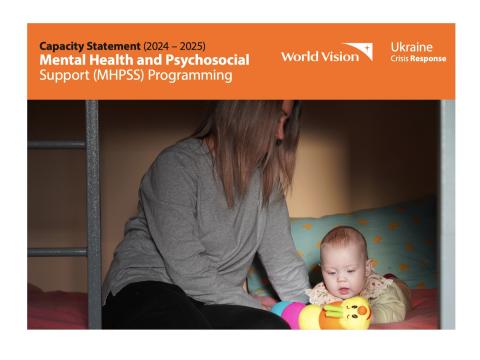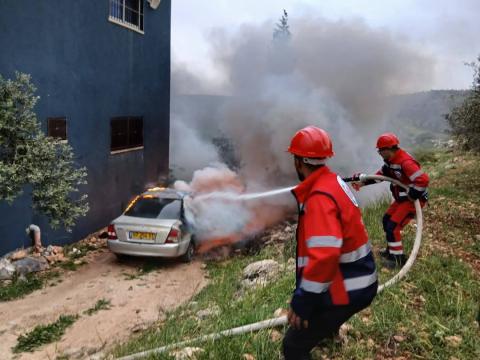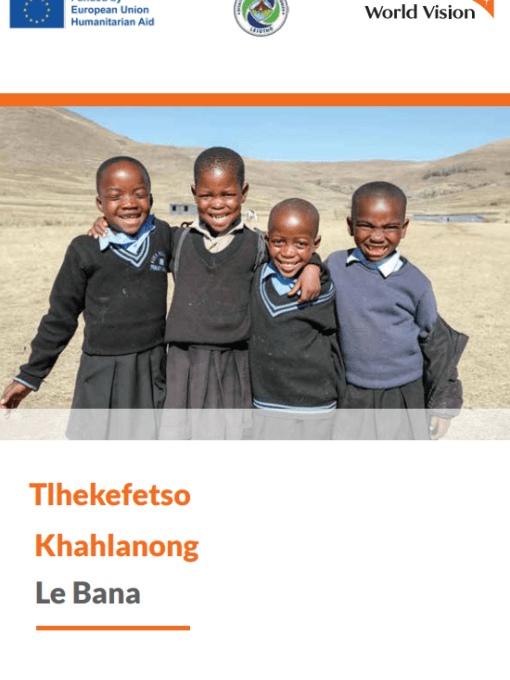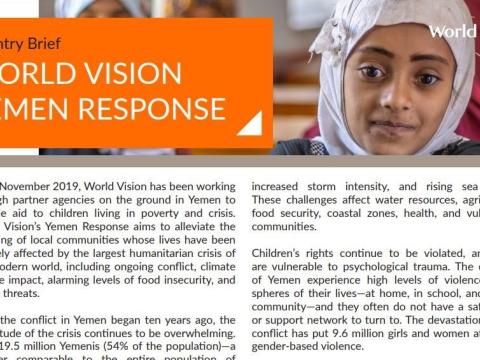Capacity Statement: Mental Health and Psychosocial Support
Download
Project Models
Psychological First Aid (PFA): A humane, supportive and practical assistance to persons who recently suffered exposure to serious stressors. World Vision promotes the capacity building of staff, faith- based leaders, community leaders and community members in PFA to respond to people in distress in an appropriate and sensitive manner.
Child Friendly Spaces (CFS) / Play and Learning Hubs (PLH): During humanitarian emergencies, children in our service hubs benefit from an enhanced package of psychosocial activities, an activity catalogue, that help foster normalcy and prevent distress and suffering from developing into more severe conditions. These activities facilitate peer social engagement, stress management and problem solving, and providing space for arts, games and physical fitness among children and adolescents.
Social and Emotional Learning (SEL) is one of the strategies to integrate MHPSS in the education sector. Through structured SEL sessions, young people and adults acquire and apply the knowledge, skills, and attitudes to develop healthy identities, manage emotions and achieve personal and collective goals, feel and show empathy for others, establish and maintain supportive relationships, and make responsible and caring decisions.
Problem Management Plus (PM+) is a brief, individual, and group intervention for adults (e.g., caregivers). It aims to help people improve their management of practical (e.g. unemployment, interpersonal conflict) and common mental health problems (e.g., depression, anxiety, stress or grief ). The “plus” refers to the evidence-based cognitive-behavioural strategies added to problem- solving counselling to create PM+. These include approaches for managing stress, managing problems, to get going and keep doing (known as behavioural activation), and strengthening social supports.
Multidisciplinary Mobile Team (MMT): World Vision and its partners organize a cohort of psychologists and social workers able to access hard-to-reach locations to provide essential psychosocial support. They provide pertinent information to affected populations and where necessary facilitate linkages to tailored and specialized service providers. This model effectively fills the gaps in service delivery by formal actors.


